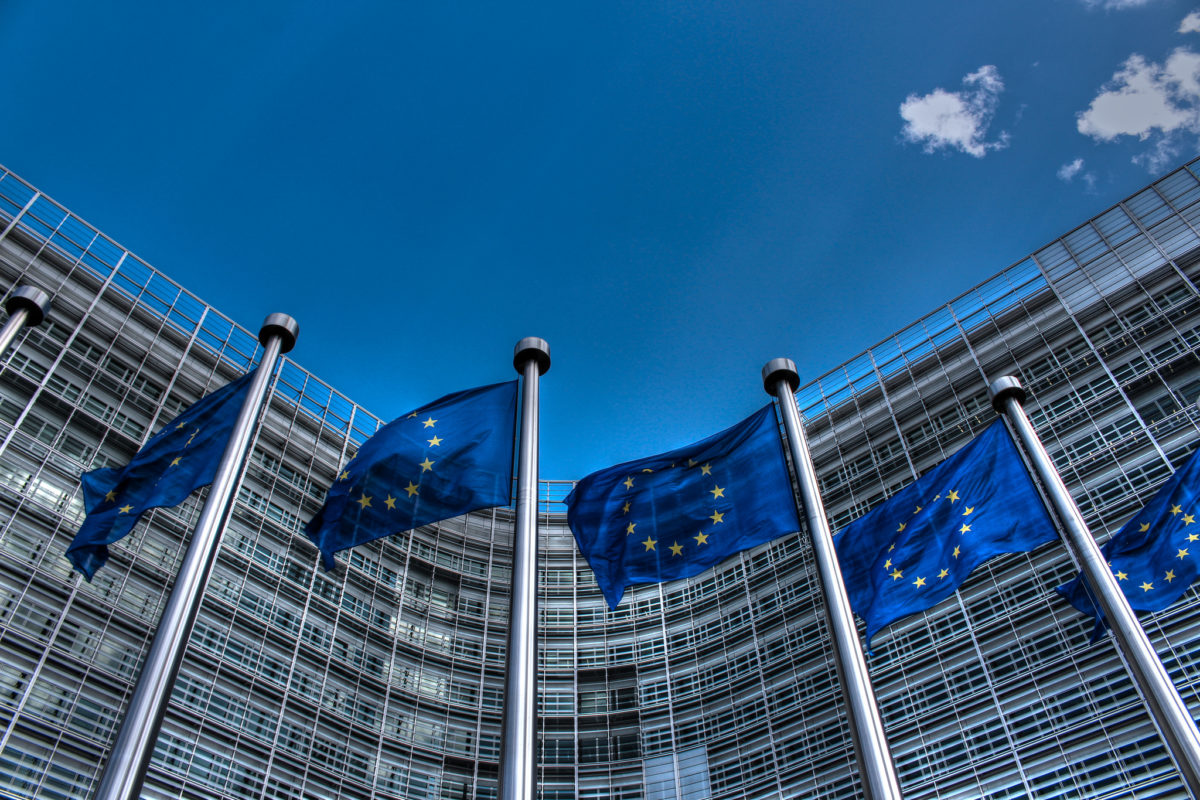One of the hottest topics in the European solar market, if not the global solar market, experienced an intriguing development yesterday, as an expert committee representing EU Member States voted on the European Commission’s (EC) proposal to extend anti-dumping and anti-subsidy measures against Chinese solar cell and module manufacturers for two years. Interestingly, the committee voted to approve the extension of the anti-subsidy measures, but voted to oppose the extension of the anti-dumping measures.
The trade measures were originally applied to solar cell and module imports from China in December 2013, as a means of protecting Europe’s solar industry, however, some voices within the industry feel that the measures are counterproductive, and are actually hindering the growth of the solar industry within Europe.
A minimum import price (MIP) agreement was also set up, for Chinese companies to avoid the duties if they sold their products at a minimum price, however, price declines within the industry have made the MIP look somewhat out of touch with real-world pricing, resulting in the majority of Chinese manufacturing heavyweights opting out of the agreement.
The trade measures had been up for review within the EC, who has put forth a proposal to extend the duties, albeit updated duties, for two years. Within the proposal, an 11% duty would be included as an anti-subsidy measure, and a 36% duty would be included as an anti-dumping measure, while the MIP has been reduced by 20%. It also includes an interim review, which is likely to lead to a gradual reduction of the level of the duties.
“We are confident our proposal presents a balanced way to protect the Union solar cell and module producers from ongoing unfair trading practices, while taking into account the interests of users, upstream and downstream companies in the solar value chain,” a European Commission source told pv magazine. “Therefore, we proposed to extend the measures for two years, instead of the usual period of five years.”
2 votes, 2 different outcomes
The meeting that took place between a committee of EU trade experts was to have two non-binding votes on these measures, which could either approve the proposal, or force it to go to an appeal. The source from within the European Commission confirmed that the committee voted to approve the proposed extension of the anti-subsidy measures, but that the meeting did not lead to a final decision on the anti-dumping measures.
SolarPower Europe CEO James Watson offered pv magazine further explanation. “Yesterday there were two votes – one on anti-subsidy and one on anti-dumping,” said Watson. “The anti-subsidy vote resulted in 14 oppositions from Member States, 15 would have been needed to trigger the appeal. On anti-dumping 18 states opposed the measures five abstained and five voted in favour, the proposal of the Commission has thus been rejected and is now subject to an appeal process where the Commission will be expected to revise their approach before another vote from the Member States. This will take place in the next four weeks.”
This is the first time that this appeal process has been triggered for an EC proposal, which adds some historical significant to the vote, although this process has only been possible for the last two years. However, the anti-subsidy duty extension is now out of the hands of the Member States, and it likely to be adopted by the EC.
“We have been campaigning for the end of these trade measures for the last 18 months, and are pleased that the Member States have sent a strong rebuke to DG Trde for not taking account of the interests of the European solar industry,” commented SolarPower Europe President Oliver Schaefer. “We hope that the Commission will now review their proposal and through the appeal process substantially revise their approach.”
It is important to note, however, that while SolarPower Europe has been the chief proponent of removing the duties, other voices within the European solar industry have been strongly in favor of keeping the duties, particularly EU ProSun. This alternative solar association believes that the measures have been adjusted effectively, and fully expects the new proposal to be implemented.
“In the EU, eight member states are home of significant solar manufacturing, while others don’t and may believe it to be opportune not to openly stand against China,” said EU ProSun President Milan Nitzschke. “However, we’re convinced that an extension of the anti-dumping measures will be determined during the next weeks. The Commission’s argumentation is clean and stringent as it is rare in such cases.”
“The minimum import price has just been reduced by almost 20%, solar systems and PV in Europe today is as cheap as never before,” added Nitzschke. “This new, great technology pays for nearly everywhere in the EU. To leave this technology completely to Chinese companies, which operate state financed dumping, would be fatal.”
This content is protected by copyright and may not be reused. If you want to cooperate with us and would like to reuse some of our content, please contact: editors@pv-magazine.com.



By submitting this form you agree to pv magazine using your data for the purposes of publishing your comment.
Your personal data will only be disclosed or otherwise transmitted to third parties for the purposes of spam filtering or if this is necessary for technical maintenance of the website. Any other transfer to third parties will not take place unless this is justified on the basis of applicable data protection regulations or if pv magazine is legally obliged to do so.
You may revoke this consent at any time with effect for the future, in which case your personal data will be deleted immediately. Otherwise, your data will be deleted if pv magazine has processed your request or the purpose of data storage is fulfilled.
Further information on data privacy can be found in our Data Protection Policy.